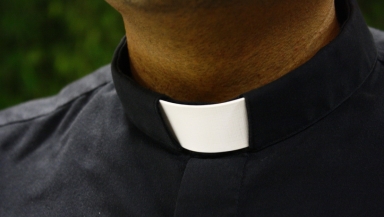
A former church chorister dying from motor neurone disease used eye-tracking technology to give courtroom evidence against a former vicar who abused him.
The Guardian reported that a retired Anglican vicar was last week convicted of three counts of indecent assault dating back to the 1970s in what is believed to be the first time Eyegaze equipment has been used for cross-examination in a British crown court.
The victim, who was a young boy when the offences occurred, recorded his evidence and was then questioned by lawyers at Bournemouth crown court via video link as he lay in a hospice bed in Streatham, south London, while being helped by an intermediary provided by the Ministry of Justice.
The eye-tracking technology is similar to that used by the physicist Stephen Hawking to communicate. The 47-year-old former chorister, who has not been identified, used it to recall the attacks during his childhood.
However, the man did not live to hear the outcome of the case. A Metropolitan police officer was sent to Streatham to deliver news of the guilty verdict, but turned back after the force was informed that the victim had just died.
Cyril Rowe, now 78, was a vicar at St Matthias Anglican church in Stoke Newington, London, where the boy was in the choir.
Rowe, who is now living in Bournemouth, was found guilty last Wednesday and is due to be sentenced on March 10. He was charged in September 2016 after the offences were reported to the police in August 2015.
The indecent assaults were all committed against one victim between 1979 and 1981, and the unnamed chorister was between nine and 11 years old at the time.
A statement from the Met said: 'The victim gave evidence at court via a link from a hospice in Streatham. He suffered from motor neurone disease, and, by blinking his eyes, he was able to "speak" to the court via eye-tracking technology. The victim died, aged 47, on the same day that the guilty verdict was returned. He never heard that Rowe had been convicted.'













